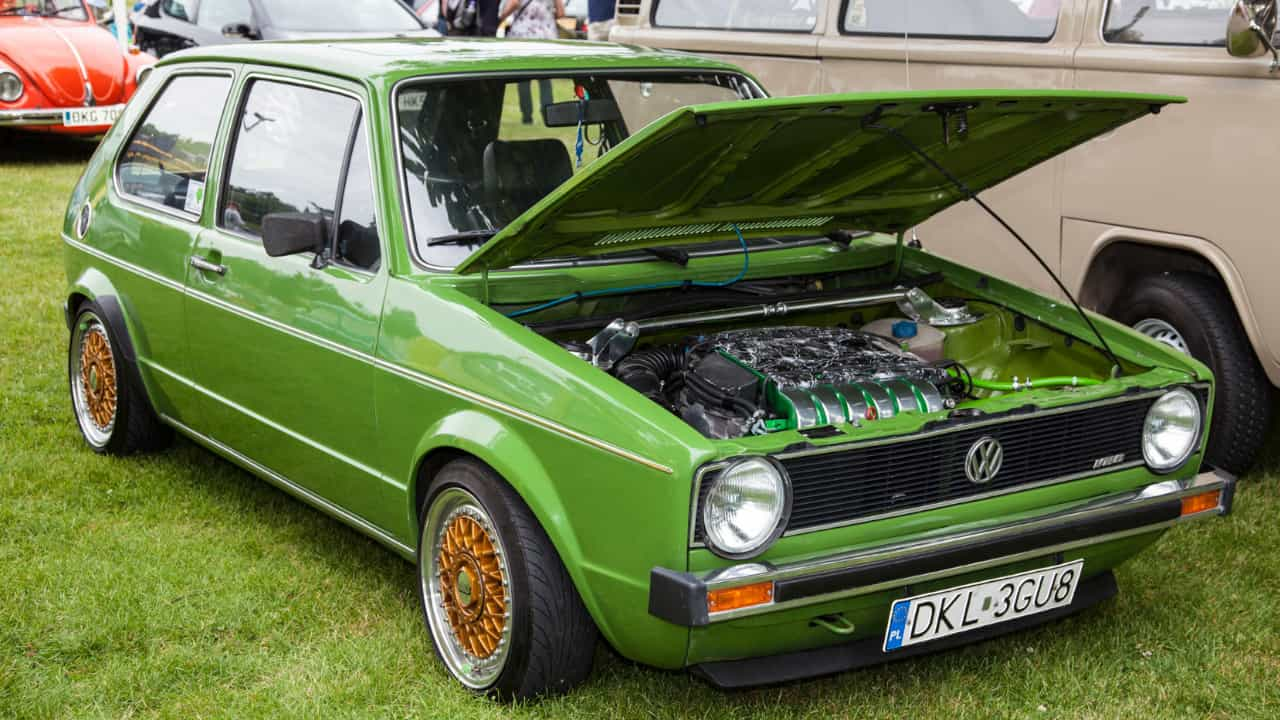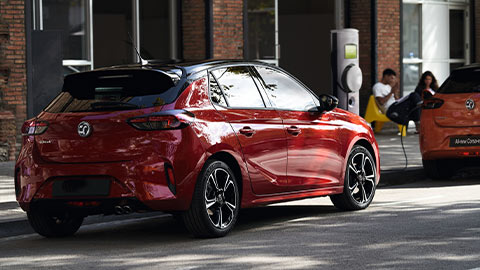Modified Cars
When you hear the phrase 'modified cars', you may think of Vin Diesel, American Muscle and Japanese cars, neon lights and massive spoilers.
But in reality, is the term 'modified car' is perhaps attached to a certain stereotype, mainly a teenager with a car sporting cosmetic changes that are if anything going to disrupt its performance, rather than improve it.
In reality, car modifications can come in all shapes and sizes, and if you can get beyond the classic stereotypes, you can actually enhance your automotive experience. In this blog will we try to give a general overview of modified cars, along and all you need to know when it comes to modified vehicles.
Contents
- What is a modified car, and why is it done?
- Cosmetic or Performance?
- Does modifying a car affect its warranty?
- Buying a used car with modifications
- Do modifications affect car insurance?
- Can you modify a financed car?
- Illegal modifications
- Which is best, standard or modified?
What is a Modified Car, and why is it done?
In simple terms, a modified car is any car that doesn't conform to its original specification, in which it left the factory in. People choose to modify their cars due to a number of reasons, which include cosmetic and performance factors, improvement, enhancement and to stand out from the crowd, and of course, create something to their own personal taste.
A modified car can be subtle or striking, depending on what has been done to the car. For example, you could modify the car's brakes or add parking sensors - both of which will enhance safety and will not really stand out to most onlookers. A modified car could also be a classic car enhanced with more modern parts and upgrades, like the Mk1 VW Golf above.
Then you have more obvious, stereotypical modifications, like bodykits, lowered suspension, different wheels, spoilers, and colour changes - like vinyl wraps. These change the appearance of the car, and will make a car look different to its 'standard' specification.
Some modifications are done to also suit a particular type of car. For example, if you enjoy track days, modifications like roll cages, suspension modifications and body modifications can help the car performance much better.
Cosmetic or Performance?
Modifications sit under cosmetic or performance modifications. Cosmetic change the car's standard look, whilst performance modification enhance the car's standard specification. Performance modifications can also change the car's standard look too. Examples are listed below:
Cosmetic
- Vinyl wraps, window tinting, colour changes
- Wheels - different styles, sizes
- Body kits
- Spoilers
Performance
- Remapping
- Brakes
- Suspension - lowering etc
- Exhaust - stainless steel, louder
- Stereo/technology - Enhancing sound performance, or a car's infotainment
Some of the above could also fit into both categories. For example, a spoiler will change the look of a car (cosmetic) but will also aid downforce on the right car, such as a high performance track car. Elsewhere, suspension lowering will tend to make a car handle better (performance), but also make the car look better (cosmetic) to enthusiasts and the like.
Does modifying a car affect its warranty?
In most cases modifying a car will affect its warranty. For example, if you change the car's performance via a remap, you're effectively putting the car under more 'stress' than standard, so if the engine was to develop a fault, the manufacturer could refuse to pay out in a warranty claim.
However, with manufacturers themselves offering performance enhancements, some modifications do not void your warranty - it will all depend on the modification in question. Performance cars which sit under the likes of Audi RS, BMW M and Ford Performance have enhancements and modifications available for their models which are manufacturer approved.
MSRT (pictured above) are modified vehicles which still comply with Ford Warranty, whilst other manufacturers like BMW choose to offer even more hardcore M cars, which feature track-inspired upgrades. Technically, these modifications are standard to the car, but may appear enhanced over the standard car - for example a BMW E92 M3 GTS pictured below in orange came with a roll cage, three-point harnesses, and bucket seats from the factory, whilst a standard E92 M3 didn't.
The standard BMW E92 M3 is a car which is modified a lot, and makes a fantastic track car. You only have to go a serious track like the Nürburgring in Germany to see proof of that, but if you want one already done, like the GTS, with a warranty intact, you'll have to pay a premium, as manufacturer 'modified' editions usually have gone through lengthy testing.
Do modifications affect car insurance?
In short yes. Any modification done to a car will affect its insurance, but in some cases, it could actually lower your premium, along with increasing it more likely, too.
For example, if you are fitting different wheels, or adding styling enhancements, such as a body kit, it could make the car more appealing to thieves, and will therefore increase your premium.
However, if you are thinking about adding safety enhancements like parking sensors, it could lower the premium. Always declare any 'mods' to insurance companies, to ensure you are covered properly.
If you are insuring a car with 'enhancements' from the factory, like the BMW E92 M3 GTS pictured above, you will likely pay a premium to the rarity of the car, and of course its value.
Buying a used car with modifications
If you're looking at a modified used car, it's a good idea to make sure you understand what has been changed on the car, as if you fail to declare any modifications with your insurance company, if you were to have an accident or the car was stolen, the insurance company could refuse to pay out if you didn't declare or modifications.
Some modifications may be obvious, such as wheels, spoilers etc, but what may not be obvious is things like remaps and engine modifications. If you are not sure about something, always ask the seller, or simply walk away. Modified cars can put buyers off, whilst if you're buying the car for a specific purpose, such as a track car, some modifications may be welcome, and save you a job.
Can you modify a financed car?
In short, no. However, some owners do ask permission from the finance company, whilst many don't, and run the risk of complications in the future, if the car is handed back to the finance company. If you intend to keep the car, then modifying it may be less of a worry for you, as the car will not be going back to the finance company.
Sometimes, if the car developed a fault with the engine, and you had modified the wheels, chances are the wheels didn't cause the breakdown, however, if you were to remap the engine, and then a fault developed, it's more than likely the manufacturer won't agree to fix the car under warranty as the modification could have put the engine under more stress, hence the breakdown.
Illegal Modifications
Of course, when modifying your vehicle, some are illegal, and if you were to get stopped by the police, you could be in for a hefty fine, or even points. Your car could also fail an MOT with an illegal modification, too. Examples are listed below:
- Neon lights
- Blue lights
- Headlight tinting
- Window tinting beyond a specific percentage
- Nitrous Oxide
- Alternate number plate fonts
Which is best, standard or modified?
This question is subjective. Some people enjoy buying a car and keeping it standard, keeping their warranty intact, and their insurance premium pretty reasonable. Of course, the scope for modifications is huge and there is no denying some modifications can improve a car's appearance or performance.
The stereotype of modified cars will always be there, but to enthusiasts, some modifications are a necessity, especially with older cars whereby a specialist company or tuner has developed a stronger, or better performing part.
Some manufacturers have gone as far as purchasing tuners, or racing teams who have been modifying their cars, such as Mercedes purchasing AMG back in 2005, after owning a large stake since 1999. Porsche own 51 percent of shares in Manthey racing, who have a long history of Porsche racing expertise, which they can apply to Porsche road cars.
There is no denying that modifying cars is big business, and when it's done properly, it can be incredible.
Discover your perfect used car with Evans Halshaw
Whether you are looking for the perfect used car to modify, or find a specific used car with the manufacturer approved modifications, like those offered by Ford Performance, let Evans Halshaw help you find your perfect used car.
Alternatively, if you enjoyed this article, check out our dedicated blog section to discover more like it.













